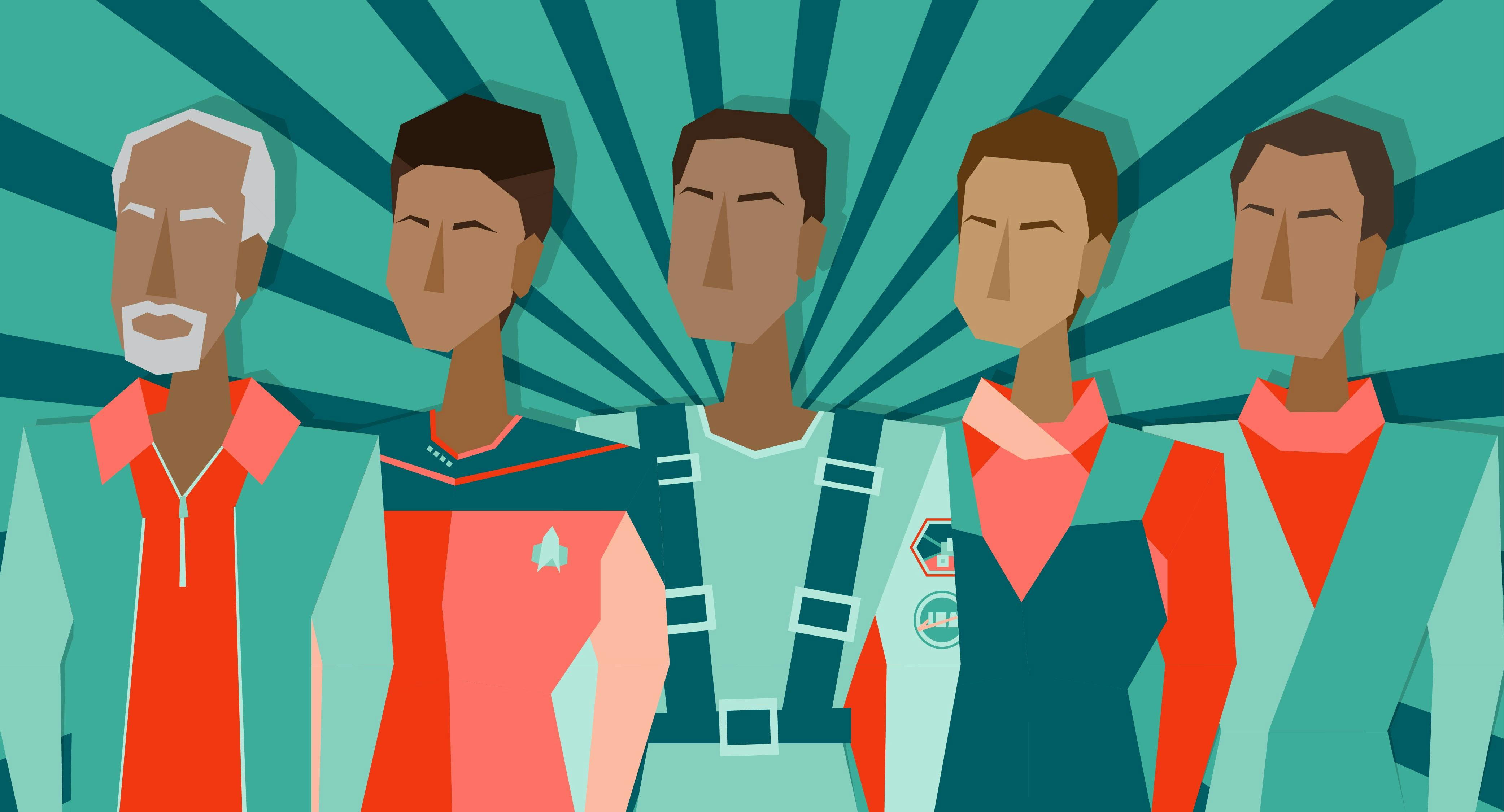Published Aug 19, 2022
A Look at Afrofuturism in Star Trek: Discovery
Examining the future presented in the hit Star Trek series with an Afrofuturistic lens.
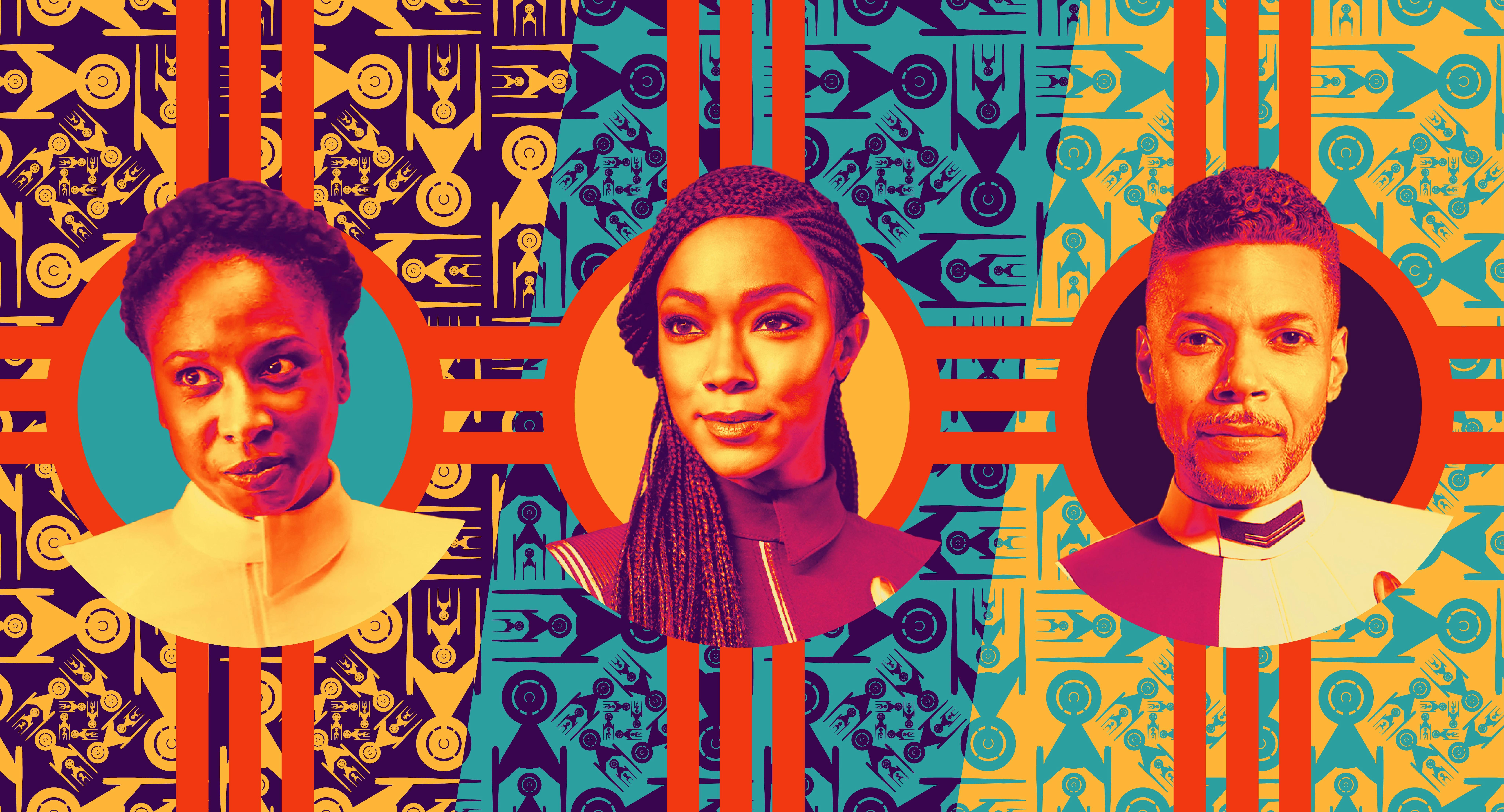
StarTrek.com
At once a pedagogy, aesthetic, and cultural touchstone, Afrofuturism is at its core, the shared vision of an abundant Black Future. It’s a future rooted in liberation, innovation, and technoculture, with the Black diaspora front and center. Anchored by the speculative fiction of Octavia Butler and Samuel R. Delany, Afrofuturism is the expression of science fiction, fantasy, and a cosmic mythology that binds the Black diaspora.
invites us fearlessly into Earth’s Afrofuture through the undeniable Black Genius of Captain Michael Burnham. Starting with Season One, we’ll look at some of the most Afrofuturistic episodes of so far, from my point of view as a Black, queer, non-binary woman. This list was incredibly difficult, if not painful to make, and I quite honestly could write an essay about every scene that contains a Black person. However, my intention is to open up a reading of the series that might not have been obvious.
In this reframe of Star Trek: Discovery from an Afrofuturist view, I hope you gain a new perspective on this beloved show, and the endless possibilities it presents for our future.
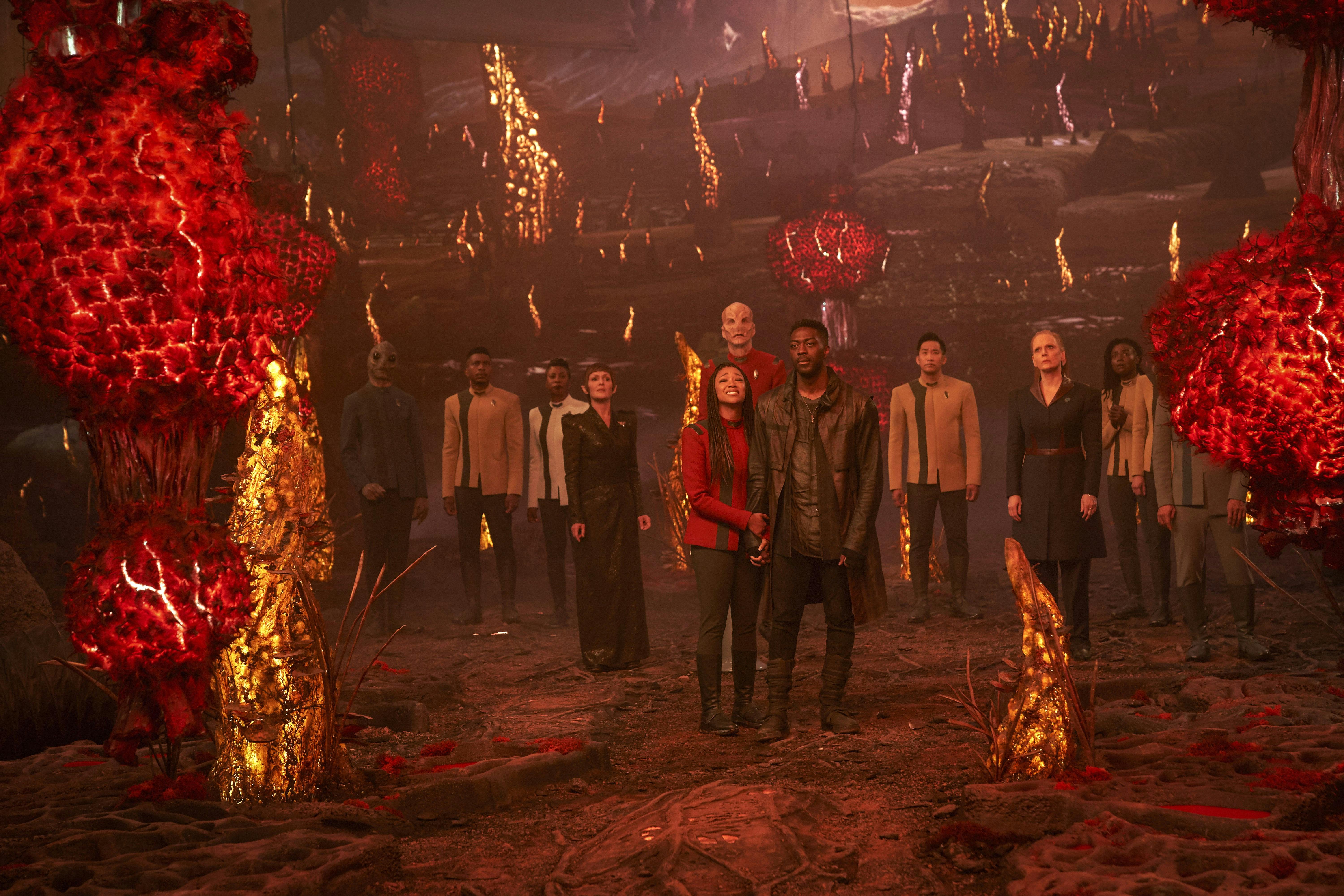
"Coming Home"
StarTrek.com
Dr. Tracy Pollard and "The War Within, The War Without"
Season 1, Episode 14 (2018)
Directed by David Solomon
Written by Lisa Randolph
In the penultimate episode of Season 1, we get our first good taste of the incomparable Dr. Tracy Pollard — the Starfleet physician aboard the Discovery. Unquestionably capable of whatever is put in front of her, Dr. Pollard’s presence, assuredness, and perseverance make her a figurehead of Black Majesty in this Afrofuture. When this powerhouse Black woman takes over for the equally remarkable Afro-Puerto Rican physician Dr. Culber, we are situated in an Afrofuture that overrides a medical history of violent malpractice — history that weighs heavily on the relationship between Western medicine and the Black diaspora. This episode is a great display of the Afrofuturistic command that Black people have over health and wellness in the series. Through the formal introduction of Dr. Pollard's medical expertise, a foundation is laid for the death-defying Afrofuturism explored in later seasons through Dr. Culber and Cleveland Booker.
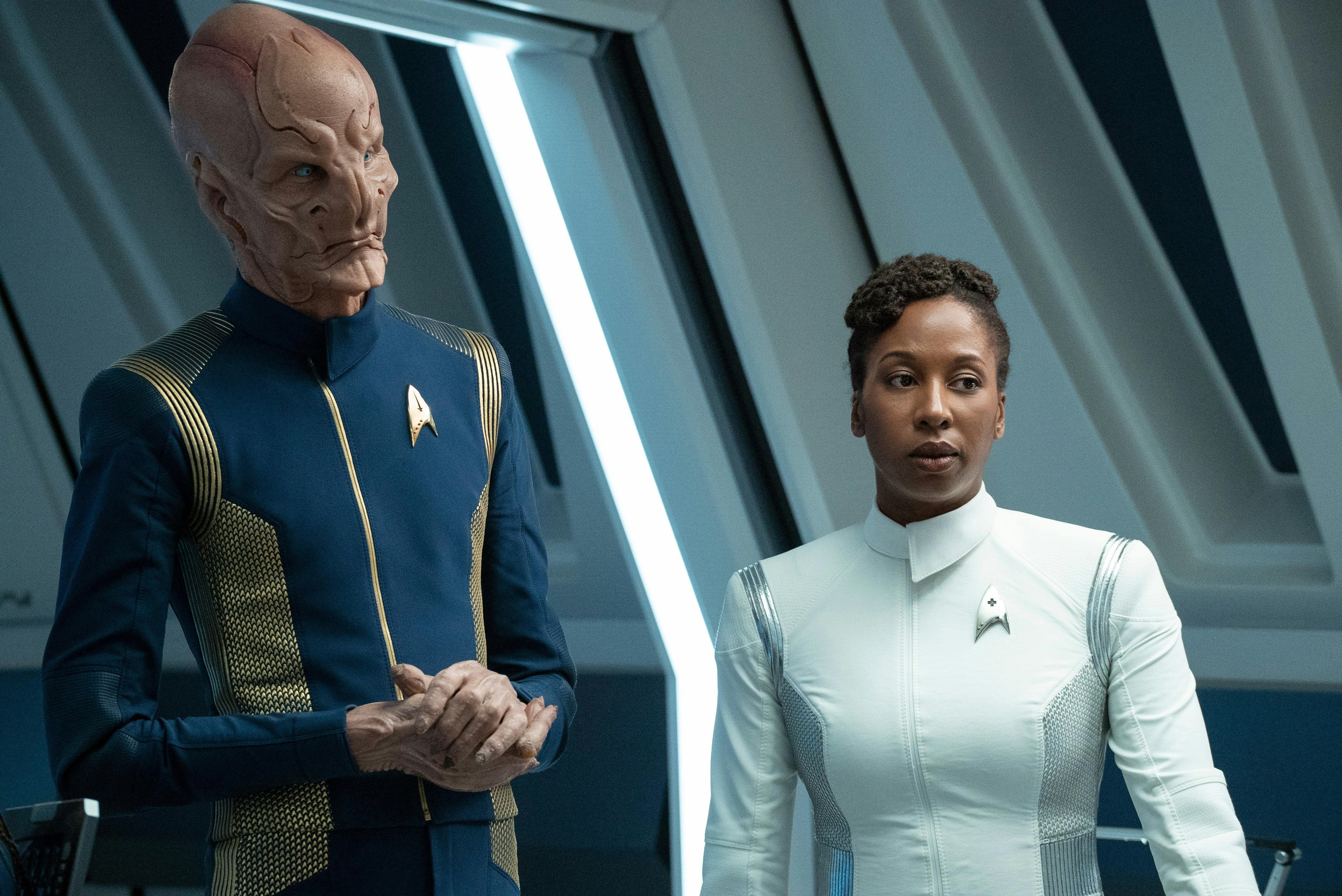
"Forget Me Not"
StarTrek.com
Dr. Pollard is extremely well-versed in the art of medicine, seasoned as a Lieutenant Commander, and comfortable in her position as an authority on technoculture. After the sudden murder of her colleague, she has stepped up as Chief Medical Officer through the tragedy and is assigned to oversee the surgical undoing of an experimental mutilation. Dr. Pollard can change lanes and develop new skills in the blink of an eye, as demonstrated by her successful rehabilitation of the first Klingon-Human hybrid.
When we see Dr. Tracy Pollard in this series, she is saving lives through impressive curative feats, making sense of medical anomalies, and managing a Sickbay plagued by constant overflow. Although we don’t spend much time with this character throughout the series, she is a shining example of Black Excellence and medical aptitude — a hallmark of the Afrofuture constructed throughout Star Trek: Discovery.
Michael Burnham and "Such Sweet Sorrow"
Season 2, Episodes 13 & 14 (2019)
Directed by Olatunde Osunsanmi
Written by Michelle Paradise, Jenny Lumet, and Alex Kurtzman
The crew of Discovery have been led on various missions throughout this season, signaled by the Red Angel, and the importance of all these events culminates in this brilliantly directed two-part finale. In order to save the collective, Burnham attempts to martyr herself, but tragedy is avoided by the Afrofuturistic trajectory of the story. Instead of another instance of Black suffering for the benefit of everyone else’s life, we see the collective respond, turning the burden of an unknown future into a mission of excitement and hope.
We see Michael Burnham comfortable in her Black Genius. It exemplifies an Afrofuturistic view of living where Black women are at the forefront of time-travel and technology. Burnham is diving into an Afrofuture that actually demands her arrival in order to exist.
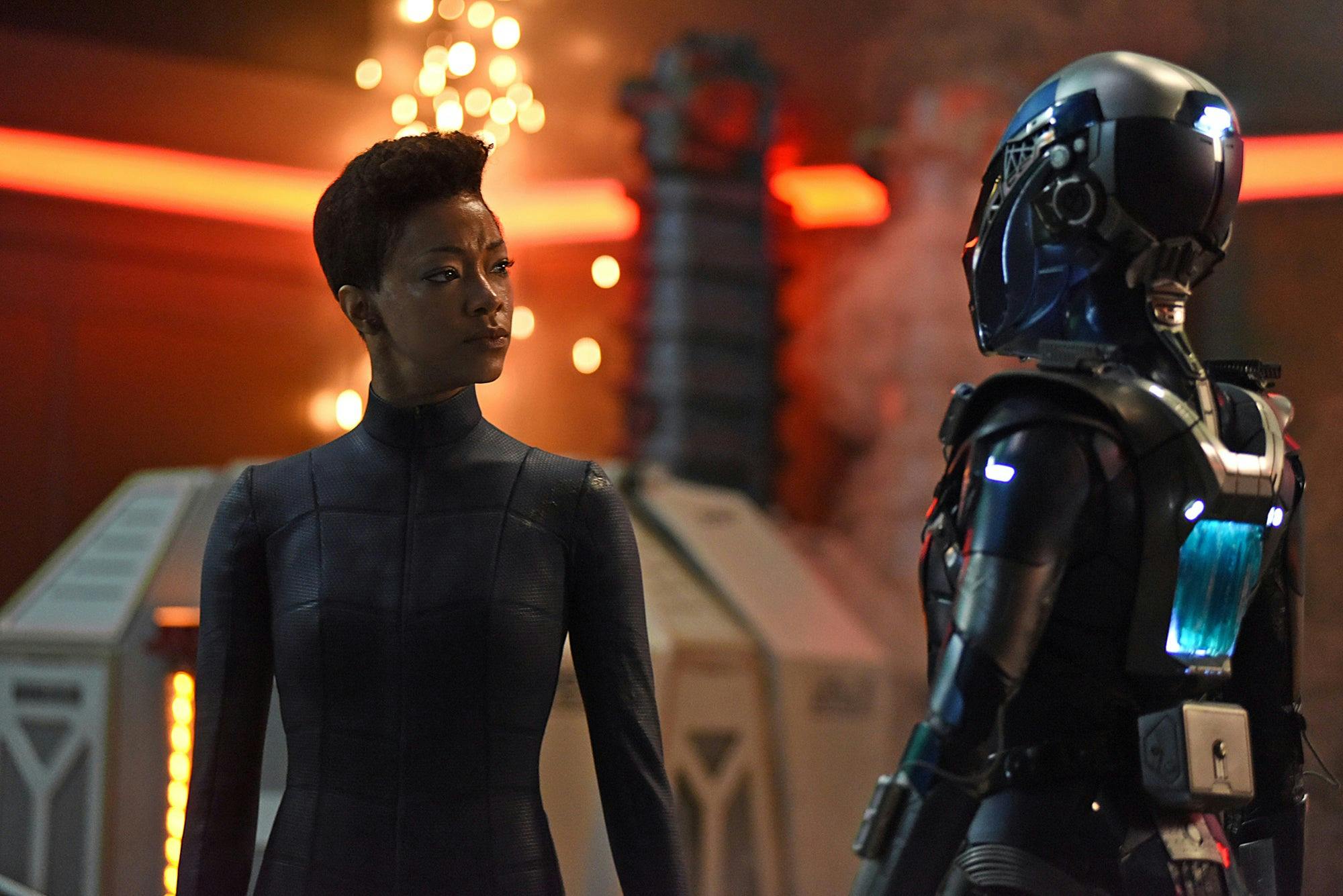
"Such Sweet Sorrow, Part 2"
StarTrek.com
In our current reality, Black people — women especially — are exhausted from constantly warning against dangers, revealing the truth, and defending against evil that other people claim doesn’t exist. This episode takes us far away from the pain of that persistence. We’re in a future that sees everyone waiting on the word of a Black woman, after volunteering to join her on what could be a lethal mission. We also get to experience the ‘strong Black woman’ trope slightly subverted, as climax and solution is pursued through Burnham’s triumph, with agency, and what could be suffering is alleviated by the faith and action of her community.
Michael Burnham’s intelligence is trusted implicitly when she comes up with a plan to stop the season's big bad, Control. Her community believes her judgement without question, and chooses to come with her into the future when it’s not necessary for them to do so. While the collective risks their lives for the betterment of hers, Michael Burnham takes a leap of faith that saves the Universe, and leaves us with a snapshot of Black Majesty that sits front and center in my Afrofuturistic read of this show.
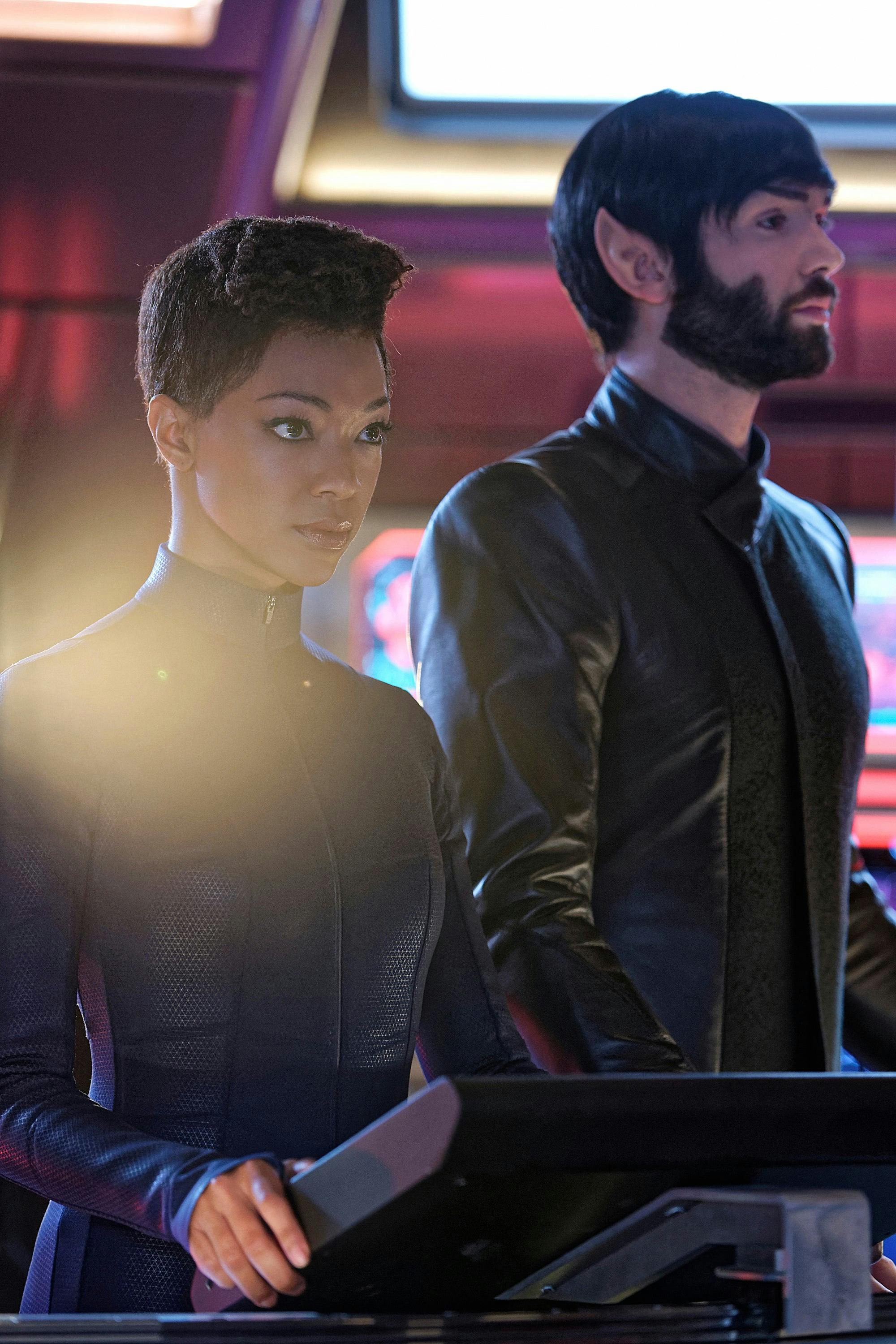
"Such Sweet Sorrow"
StarTrek.com
Burnham, Book, and "That Hope is You, Part 1"
Season 3, Episode 1 (2020)
Directed by Olatunde Osunsanmi
Written by Michelle Paradise, Jenny Lumet, and Alex Kurtzman
This is a landmark episode for consummate performer Sonequa Martin-Green, whose divinity as a Black woman is a gift to us every time she’s on-screen as Michael Burnham. Michael is alone in an unknown time, on an unknown planet, unable to contact her crew, but the lens on Burnham and her predicament is not one of trauma and terror. We watch her with both bated breath and surprising tranquility, knowing that impossibility is Burnham’s favorite thing to overcome.
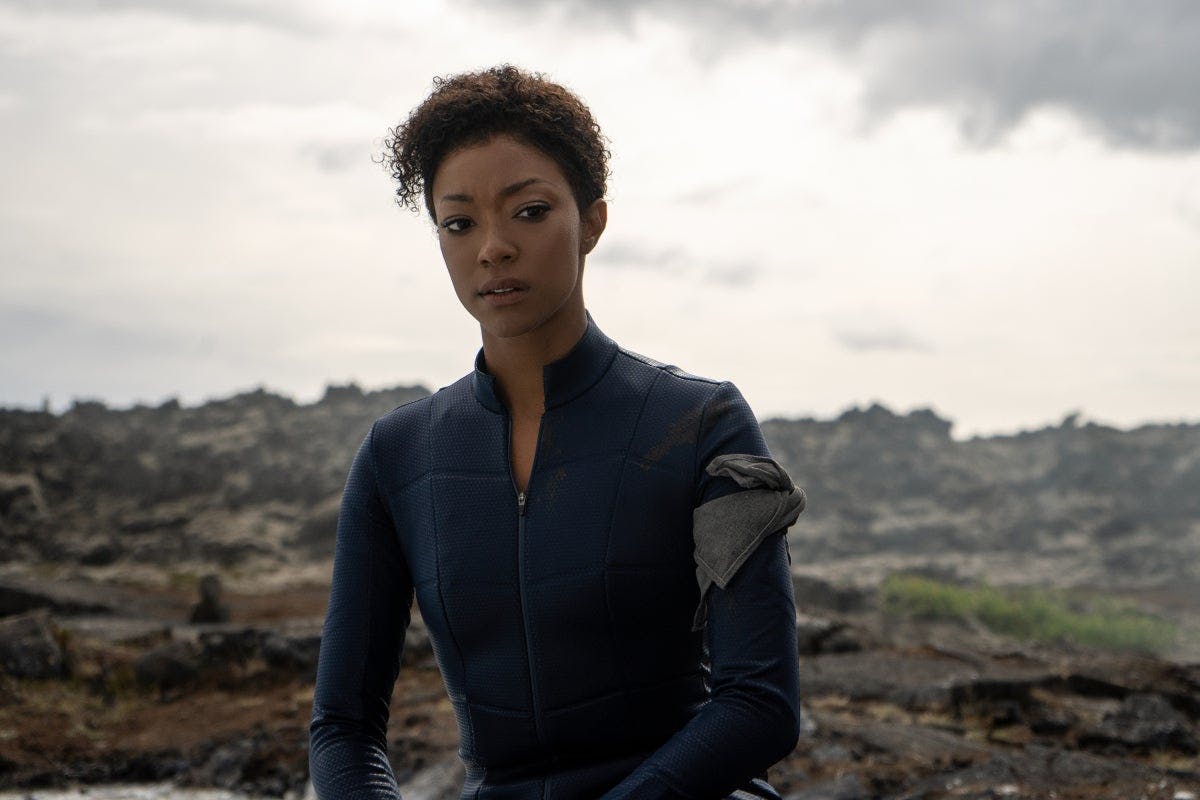
"That Hope is You, Part 1"
StarTrek.com
Plummeting through space in a hyper-techno time suit, Michael Burnham crashes into the ship of Cleveland “Book” Booker. He attacks her, and in true Starfleet fashion, she defends herself, outperforming him in combat, but not giving up on diplomacy. Book is fairly dodgy until revealed as debonair — a complex character whose introduction gives us broader scope in an Afrofuturistic view of this show. Once introduced to the intuitive, self-sufficient, action-oriented, and highly empathetic Book, the audience gets to see Black Genius outside of the Federation.
And importantly, Burnham befriends the resistant Booker through a combination of her xenoanthropology skills, and the unspoken solidarity they have as members of the intergalactic Black diaspora.

"That Hope is You, Part 1"
StarTrek.com
Like many in our current society, Cleveland Booker is a Black man under surveillance, who finds his back against the wall, and has been made single-minded in pursuit of his own survival. Book’s very existence is the justification of his brilliance, something that is pertinent to an Afrofuturistic view of this show. Operating alone, Book had to root his identity in defense, fear, and manipulation, but when confronted with Burnham and the familiarity of her Blackness, we see his vision expand. Through Burnham’s demonstration of both fierce individuality, and unwavering faith in the collective, Book joins his individual experience of survival to the communal action of hope. Their union throughout the series is a stalwart display of Afrofuturism and Black Love.
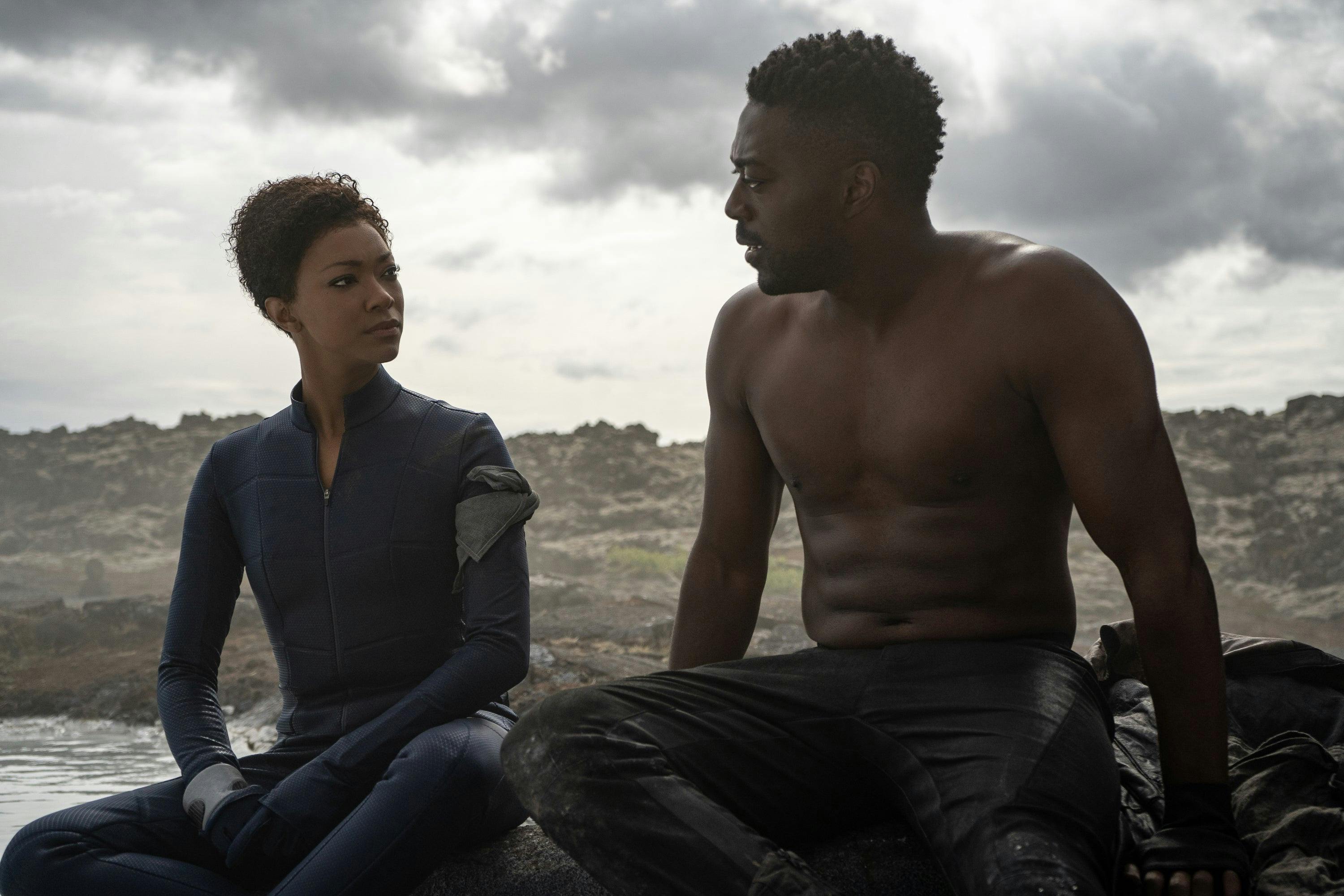
"That Hope is You, Part 1"
StarTrek.com
This episode demonstrates Black womanhood as an answer to the question of existence. We see time and time again that the future isn’t able to move forward without the Black Genius of Michael Burnham. Her boundless faith in the collective culminates as a supernatural display of self. This balance of individualism, alongside the good of the whole, is something that defines Black culture and contributes indefinitely to the Afrofuturism of Star Trek: Discovery.
Owosekun, Dr. Culber, and "All In"
Season 4, Episode 8 (2022)
Directed by Christopher J Byrne & Jen McGowan
Written by Sean Cochran
This episode presents an Afrofuture where love is a force greater than reason, and where levity is inevitable, even when the stakes are high. Taking place in the middle of Season 4, Discovery and her crew are in pursuit of First Contact with an unknown species that has destroyed the entire nation of Kwejian where Book is from. We see another example of unspoken union within the intergalactic Black diaspora when Captain Burnham invites Lt. Commander Joann Owosekun with her on a trip to the Karma Barge. She chooses the remarkable Owosekun, not only to encourage her as a friend, but because in this Afrofuture, their shared Blackness means that Owosekun can both be trusted without question and survive anything. And because of the Afrofuturism already established in this series, we also know that this duo of Black women are not at the will of reason, possibility, or death. This reflection of real Black sisterhood in a fictional future is a tool of magical realism that we see frequently in Afrofuturism works.
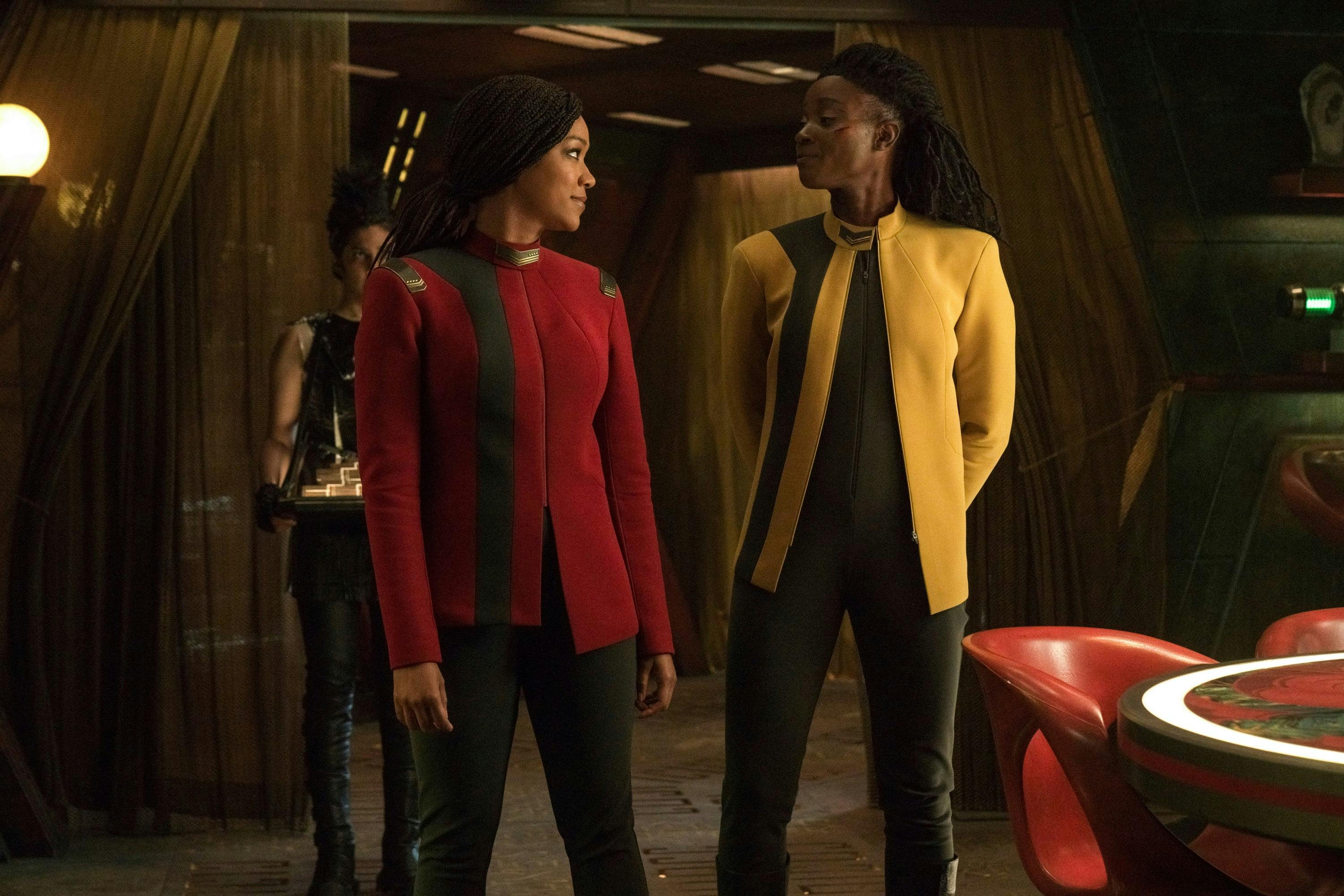
"All In"
StarTrek.com
[RELATED: ]
Following another framing device of Afrofuturism in speculative fiction, this episode takes real socio-economic issues and offers a futuristic solution. While Captain Burnham and Owosekun are on their mission, we see that Dr. Culber is overwhelmed by the burden of his workload, and in a time of massive loss, he needs to cope with the responsibility of his own resurrection. Dr. Culber’s experience of re-entrance mimics the stories of many Black people who survive suffocation by a system that relies on their downfall, and then struggle to carry the weight of everyone left behind. Black and brown people in reality are beaten by a culture of white supremacy, and those who survive are often haunted by fear of retaliation, or frozen by the potential of everyone who didn’t make it.
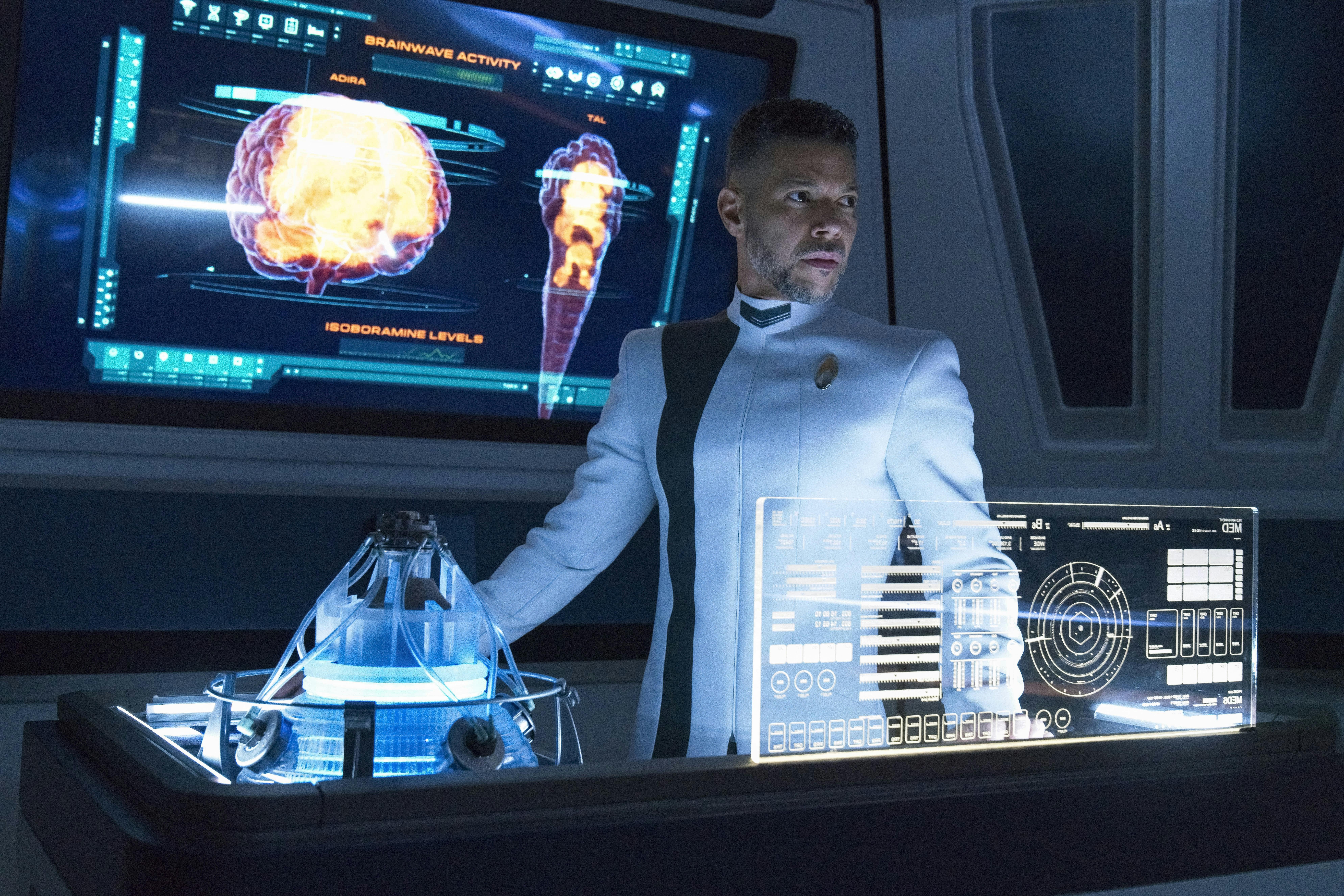
"Choose to Live"
StarTrek.com
After defeating death, Dr. Culber is faced with it at every turn, forced to question why he lives on when so many others can’t. The Afrofuturism of Star Trek: Discovery allows us to play out a different narrative than the real-life tragedy we’re familiar with. In real-life, Black and brown people are often crushed or consumed by capitalism and the labor myth, but because the Federation doesn’t rely on currency, an Afrofuturistic solution for Dr. Culber is possible.
Institutions that used to harm and exclude us are often anchors of our strength in an Afrofuturistic imagination, something that Star Trek: Discovery frequently confronts. In this Afrofuture, Dr. Culber can’t be undone by the pressures of labor because he works from a motivation of love, not profit or lack. The intention of his labor is for the good of the collective, and the intention of the collective is to uplift the individual. When Dr. Culber reaches out for help, he receives it from every angle.
It’s this commitment to both individual and collective liberation that truly allows Star Trek: Discovery to function as an Afrofuturist text.



